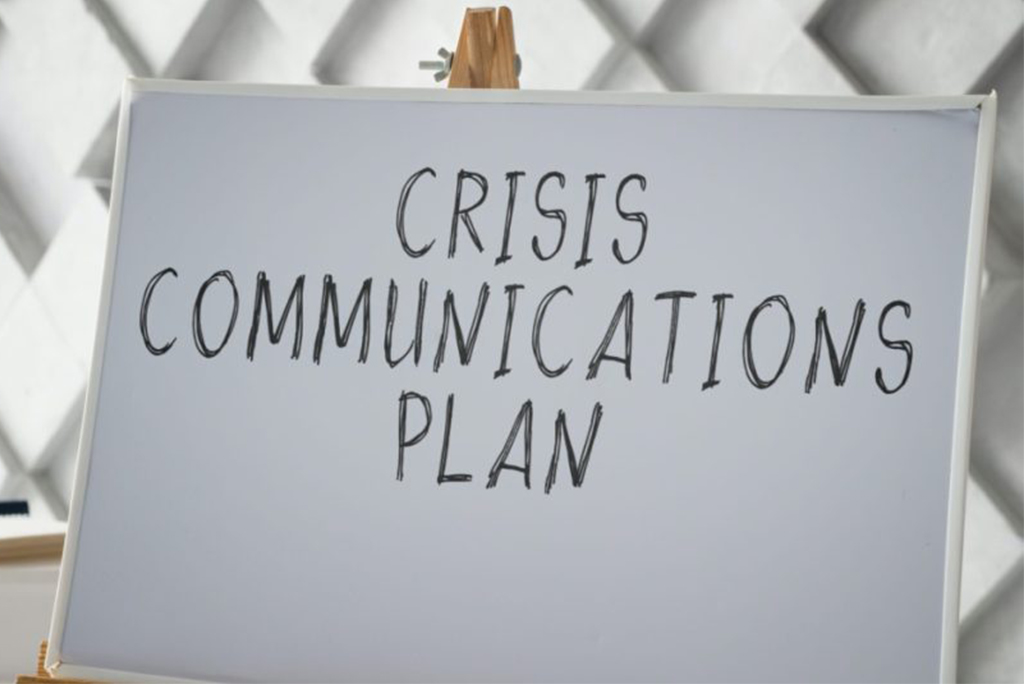Large-scale crises have the potential to derail a company’s PR campaign and undo all the hard work, money, and effort that has been put in. This potential for disaster is only heightened in today’s social-media-driven world where information travels fast and a business’s reputation can rise and fall in the blink of an eye.
To avert crises effectively and to minimize any PR disasters, you must have a watertight crisis communication strategy and this is what we look at below.
What is Crisis Communication?
Crisis communication is the process of dealing with a crisis. There are many business crises examples including:
- An employee gets caught up in a legal battle.
- An advertizing campaign is unintentionally derogatory.
- A product has severe customer backlash.
- Your company is found to be doing something unsavoury.
Essentially, crises erupt when your company does something wrong. The communication is what you do to minimize any PR damage and try to stop your reputation from freefalling. You are trying to reassure your customers, redress the issue, and explain why it happened.
Negative Impact on PR
Poor crisis communication threatens to annihilate your PR and damage your reputation with stakeholders, suppliers, customers, and the general public. With social media, the internet, and how fast information travels today, this simply can’t happen.
Crisis Communication Strategies For Effective PR
Should the worst happen, you have to be prepared and this is something a strategic digital PR agency can help with. I have also created a list of crisis communication tips below so you can start to formulate your own strategies. Hopefully, you never have to use them, but it is much better to be prepared for every eventuality.
Create a Crisis Management Plan
Before a crisis happens, it’s a great idea to develop a crisis management plan. This should detail your goals, which employees are involved, and a range of steps to take to make effective crisis communication.
With a plan formulated and distributed to the relevant people, you can make sure that everyone knows what to do immediately if a problem occurs.
Adopt a Sympathetic Approach to Your Customers
A huge mistake I see companies making during a crisis is to start blaming the customer or taking an unsympathetic approach. This is a surefire way to destroy your reputation and only deepen the crisis.
Even if the third parties are clearly wrong, you must try and be sympathetic and be seen to be understanding. Adopt a collaborative approach and refrain from immediately going on the defensive.
Make Your Crisis Communication Quick
We all know how quickly things can spread online today with the prevalence of social media. A celebrity or CEO only has to say something unsavoury at a press conference and within minutes it’s plastered over social media and news outlets.
This means that your crisis communication has to be QUICK. Don’t delay or waste time – time is of the essence and you need to fire control before things get out of hand. The instance you hear of the crisis you must take action.
Provide Regular Updates and Public Interactions
Maintaining regular communication is also key. If you communicate infrequently, you are essentially leaving it up to people’s imaginations to invent their own version of events.
This cannot happen as what actually happened can quickly get lost as social media invents new stories and regardless of if it’s true or not, it will damage your reputation. Therefore, communicate quickly, and communicate often with updates so the public has a reliable voice to listen to.
Utilize all Available Media Channels to Spread the Message
Most companies have an array of media channels available for crisis communication too. Use them! Don’t just upload a blog to your business website. Make social media posts, do a press release, make video content – utilize all means of communication available so channels are covered and your crisis communication is heard by as many people as possible.
Always Listen to Feedback Internally and Externally
The worst thing a company can do during a crisis is bury its head in the sand and try to plough on without heeding any advice. Usually, the public, your customers, and employees within your company can offer sound advice.
Listen to them! If you discount what people are saying and don’t take heed of their advice, this can appear arrogant and make your business seem aloof which will only damage your PR and reputation further.
Review and Evaluate Your Crisis Communication After an Event
As with most business practices, analysis and evaluation are equally as important as the crisis communication itself. Once the event is over and you have successfully managed the crisis, you should review the process.
During this review you can look at what you did well, and areas for improvement. The aim is to make sure that if something like this happens again, you are better prepared and can react quickly.
A Business Needs Fast and Effective Crisis Communication
As you can see, effective communication during a crisis is imperative. If you are seen to be taking action, keeping the public informed, and being responsible, you can greatly reduce any damage to your business reputation and PR.
Creating crisis management strategies helps greatly with this and allows you to be proactive instead of reactive. If you have a plan in place, everyone knows exactly what to do, and you can minimize the effect the crisis has on your organization.










